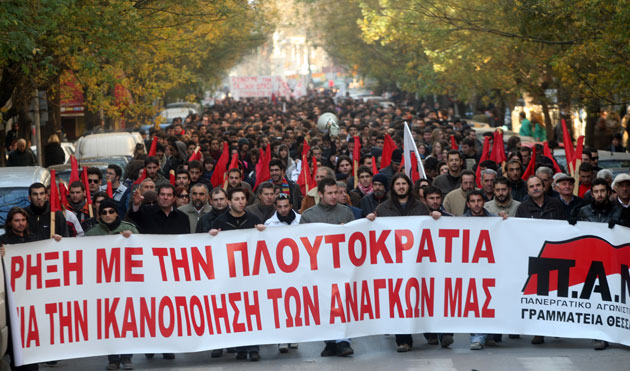
By Danielle Sabai
[This article was written before the Thai government's crushing of the Red Shirts' protest site in Bangkok on May 19, 2010. However, it provides important background to the events. This article first appeared at Danielle Sabai's Asian Left Observer.]
May 17, 2010 -- The political crisis engulfing Thailand is not a clap of thunder in an otherwise calm sky. The discourse about a country where “everyone lives in harmony and where there is no class struggle but a people united behind its adored sovereign” has nothing to do with reality. For several decades, the Thai people have been subjected to authoritarian regimes or dictatorships and a king in their service. The Thai élites have however not succeeded in preventing regular uprisings against the established order, including those in 1973, 1976 and 1992, all repressed by bloodbaths.





